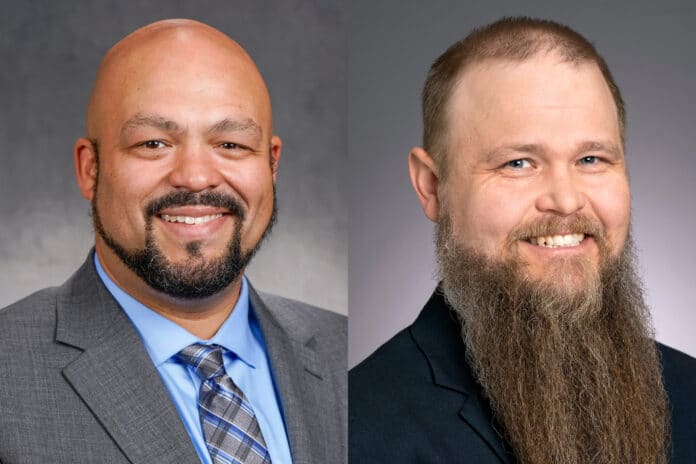
A group of Republicans in the Minnesota Legislature introduced legislation last week which would repeal the governor’s power to declare an emergency.
Dubbed the “Unilateral Emergency Powers Repeal Act,” HF 4257 was introduced by Rep. Walter Hudson, R-Albertville, in the Minnesota House of Representatives. The bill, also known as the “Never Again” bill, would strip the governor of his power to declare an emergency and give it to the Minnesota Legislature. The first iteration of the bill was introduced in 2021 by former state Rep. Erik Mortensen, R-Shakopee.
The current bill’s companion in the Minnesota Senate was introduced by Sen. Nathan Wesenberg, R-Little Falls. Across both chambers, 37 Republicans have signed their names to the bill.
Chapter 12 of Minnesota Statutes controls how state government responds to emergency situations. Currently, state law allows the governor of Minnesota to unilaterally declare a peacetime emergency with the stroke of a pen. During the COVID-19 pandemic, Gov. Tim Walz authorized an emergency declaration and effectively extended it for roughly 16 months, retaining broad power to control state government.
Despite the Minnesota Legislature’s status as a co-equal branch of government, the emergency powers gave Gov. Walz near-total authority to make decisions during the pandemic. Throughout those 16 months, a majority vote from both the Minnesota House and Minnesota Senate could have brought an end to the governor’s emergency powers.
At the time, the Republican majority in the Minnesota Senate consistently voted to strip the governor of his emergency powers. However, the Democratic majority in the Minnesota House of Representatives repeatedly refused to do the same. As such, Gov. Walz continually wielded emergency powers for over a year. He used these powers to shut down businesses, restrict religious activity, mandate masks, and more.
In July of 2021, Gov. Walz officially saw his emergency powers come to an end after striking a deal with the Minnesota Legislature.
Many in the legislature believe Walz’s use of emergency powers during the COVID-19 pandemic led to countless constitutional violations and do not want to see those powers remain in state law as they are currently written.
With three dozen sponsors in the Minnesota Legislature, the Unilateral Emergency Powers Repeal Act would dramatically change how Minnesota handles emergency situations.
First, the bill inserts language to protect the rights of all Minnesotans. Specifically, HF 4257 would ensure that Minnesota’s emergency response laws cannot be used by the government to infringe on the rights of free speech, religious beliefs, assembly, the right to keep and bear arms, the freedom to travel, or “the right to operate a business or earn income.”
Additionally, HF 4257 would entrust the Minnesota Legislature with the power to declare an emergency. Under the bill, votes from two-thirds of both the Minnesota House and Minnesota Senate would be needed to declare an emergency in “all or part of the state.” Upon authorization, the governor would be given authority to mange the emergency situation.
However, any emergency declaration approved by the Minnesota Legislature would terminate “after five days unless extended by a two-thirds vote of each body for up to 30 days.” The governor would not have the ability to continually grant himself emergency powers.
“I have never seen excitement about a bill introduction like that I’ve seen since we dropped the ‘Never Again’ bill,” Hudson said. “Messages have been pouring in thanking us for it.”











